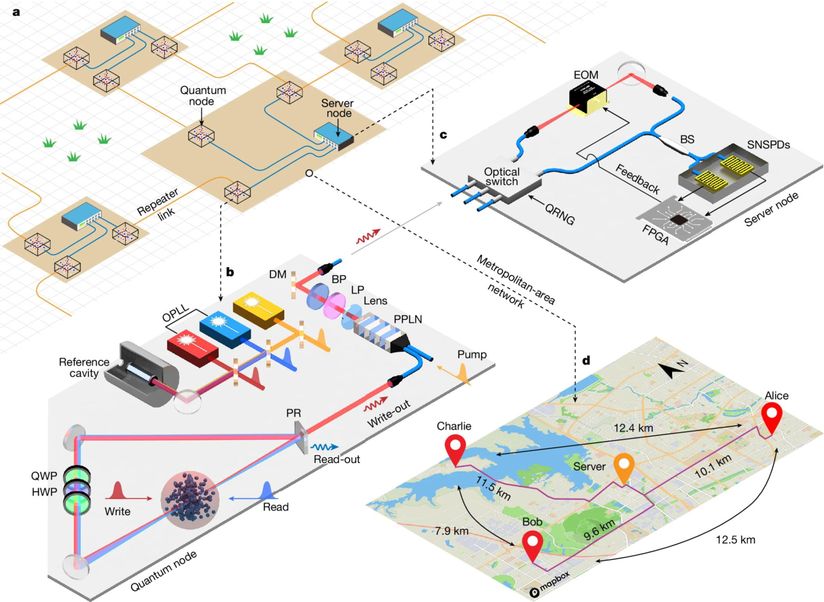
- 【CGTN】Antiferromagnetic phase transition observed in fermi...
- Chinese Scientists Create Multi-node Entanglement in Metropo...
- Two Breakthroughs from USTC Selected China’s Top 10 Scienti...
- Great Minds in Quantum Technology Sparkled in Hefei: 2023 In...
- [Xinhua News]China's Computational Power Gains New Strength ...
Chinese Scientists Create Multi-node Entanglement in Metropolitan Quantum Network (Xinhua)
-
 [2024-05-20]
[2024-05-20] -
HEFEI, May 17 (Xinhua) -- A team of Chinese scientists have created the world's first memory-memory entanglement in a multi-node quantum network over a metropolitan area.
The advancement has significantly extended the range of practical quantum entanglement networks, increasing it from a mere tens of meters to a substantial distance of tens of kilometers -- an enhancement spanning three orders of magnitude.
It has provided robust foundation for innovative quantum technologies, such as quantum computing and quantum-enhanced long baseline interferometry.

Quantum entanglement is a quantum mechanical phenomenon in which the quantum states of two or more objects have to be described with reference to each other, even though the individual objects may be spatially separated.
In the quest to build the future quantum internet, a pivotal milestone entails the transition from two-node proof-of-principle experiments conducted in labs to comprehensive multi-node set-ups on large scales.
The researchers from the University of Science and Technology of China used three independent memory nodes, each equipped with an atomic ensemble quantum memory, together with a photonic server where detection of a single photon heralds the success of entanglement generation.
The memory nodes are maximally separated apart by 12.5 kilometers, according to the study published this week in the journal Nature.
The study has unveiled a remarkable demonstration where the generation of quantum entanglement is achieved simultaneously between any two memory nodes.
Also, the lifetime of the entangled states exceeds the duration required for a round-trip communication between these nodes, according to the study.
The achievement starts a new stage of quantum internet research, which paves the way for future large-scale quantum networks, commented a Nature's peer reviewer.
